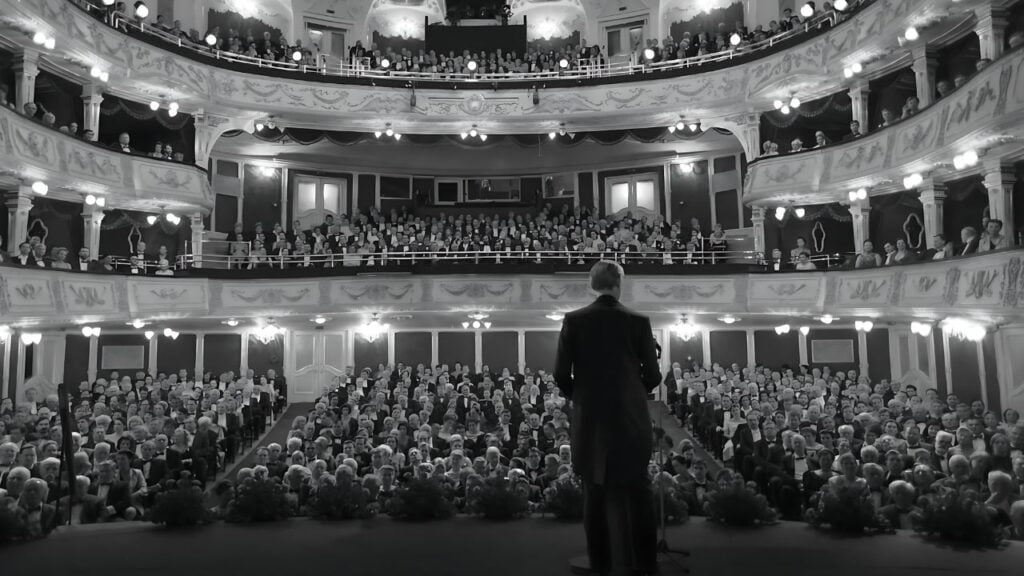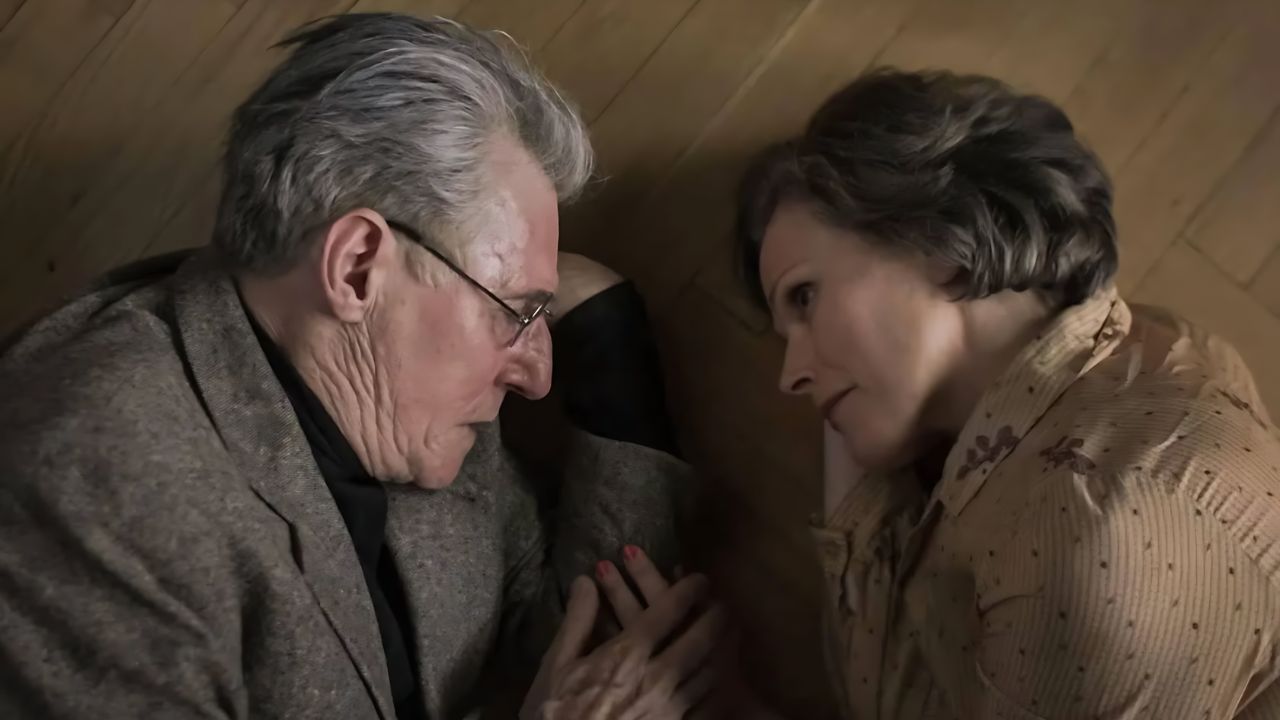Upon learning that he had been awarded the Nobel Prize for Literature, Samuel Beckett offered a resigned reaction: “What a catastrophe.” This sentiment captures the essence of the conflicted life depicted in Dance First (2024), directed by British filmmaker James Marsh. The film chronicles the life of the absurdist writer, portrayed by Gabriel Byrne, as he reflects on his experiences and confronts the collateral damage caused by his actions. Throughout the narrative, Beckett’s complex relationships with his mother, James Joyce, his wife, and his mistress are explored, and a profound sense of regret permeates his introspective musings.

Dance First provides a compelling glimpse into the personal life of a remarkably talented writer. However, it may not fully resonate with those who are unfamiliar with Beckett’s literary works. While the film does not embrace the same experimentalism as Beckett’s theatrical productions, characterized by minimalist aesthetics and stream-of-consciousness dialogues, it does echo the writer’s uncompromising nature through its predominantly black-and-white presentation and deliberate pacing. Nevertheless, for enthusiasts of Beckett’s work, the film offers a deeply insightful exploration of the challenges and hardships that defined Beckett’s journey.
In “Dance First,” Beckett’s influence as one of the most significant writers of the 20th century is palpable, yet the film primarily delves into the man himself and the detrimental impact of his relentless pursuit of creativity on those close to him. The narrative unfolds through flashbacks as Beckett engages in introspective conversations within austere, minimalist settings reminiscent of his own plays. From his tumultuous relationship with his mother to the challenges within his marriage, nearly every pivotal moment in Beckett’s life seems to be fraught with feelings of guilt and shame, resulting in a thought-provoking yet emotionally draining viewing experience.

The most compelling element of the film emerges in its first half, which probes into Beckett’s intricate friendship and mentor-like bond with the iconic figure of Irish literature, James Joyce. Aidan Gillen’s portrayal of the “Ulysses” writer is remarkably fitting, as his scenes brim with impassioned dialogue articulating the Irish people’s estrangement from themselves, the struggles inherent in the life of a writer, and the unrelenting pursuit of creativity. The dynamic between Beckett and Joyce is so compelling that it could have carried an entire film on its own, making it regrettable that this aspect was not further explored in “Dance First.”
While Gillen’s performance steals the spotlight, it’s essential to acknowledge Gráinne Good’s compelling portrayal of Lucia, Joyce’s troubled daughter. Lucia’s relationship with Beckett, marred by heartbreak and culminating in her institutionalization following Beckett’s refusal to marry her, exposes the ruthlessness and vulnerability at the core of Beckett’s character. Meanwhile, Fionn O’Shea adeptly embodies the ambitious and at times dismissively callous nature of Beckett during his youth. Much like Beckett’s bond with Joyce, his unconventional relationship with Lucia feels as though it could have been the focus of an entire film segment instead of just a brief one.
The film “Dance First” delves into the life of Beckett, with a particular focus on his relationship with Suzanne Dechevaux-Dumesnil. Léonie Lojkine beautifully portrays Suzanne as a young woman, while Sandrine Bonnaire embodies her in later years, offering a nuanced portrayal of the complex dynamics between them. The film humanizes Beckett by depicting his personal imperfections and the evolution of his relationship with Suzanne. The cinematography is stunning, with the mostly black-and-white visuals complementing the slow-paced, emotional storytelling. Unlike typical biopics, “Dance First” avoids grand moments and instead provides a minimalistic, almost theatrical experience. The dialogue, featuring Beckett’s interactions with himself, resembles the philosophical exchanges of his literary characters, adding depth to the film.
“Dance First” is a thought-provoking exploration of themes such as aging, creativity, romance, and regret, offering a deep dive into the enigmatic persona of Samuel Beckett, the mastermind behind some of the most intriguing and emotionally stirring theatrical works of all time. As Beckett contemplates how to use his Nobel Prize earnings, he grapples with the ghosts of those he has left behind, revealing that despite his literary success, his ultimate aspiration is to seek redemption for his past wrongdoings. This introspective journey isn’t an easy one, and the film is best suited for audiences who crave a profound engagement with life’s fundamental inquiries.

The nuanced and razor-sharp script by Neil Forsyth does justice to the profound words of Beckett and Joyce, lifting them to the same lofty heights as their literary masterpieces. Both Gabriel Byrne and Aidan Gillen deliver exceptional performances, capturing the complex essence of these literary giants with remarkable depth and simplicity. Their portrayal reaffirms their status as two of the finest contemporary Irish actors. “Dance First” may not resonate with everyone, but it’s not designed for mass appeal; instead, it seeks to deeply resonate with those who connect with its profound themes.
For those eager to experience this evocative cinematic journey, “Dance First” made its theatrical debut on August 9 and will be available digitally on August 16.
